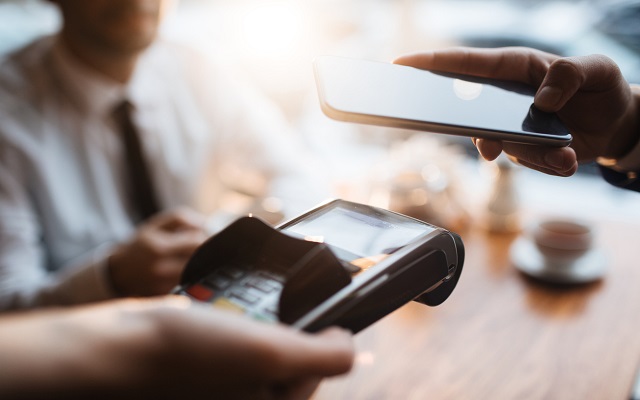
The concept of a cashless economy was a fantasy several years ago, but it has gradually become a reality, with technologies supporting the rise of mobile payments emerging in every corner of the globe. The increasing popularity of digital payment methods enables transactions anytime and anywhere through practically any device.
According to a report by Transparency Market Research (TMR)1, the global market for mobile payment technology is poised to reach a valuation of USD $1,773.17 billion by 2024 compared to USD $338.72 billion in 2015, progressing at a phenomenal compound annual growth rate of 20.5% from 2016 to 2024. Mobile payment innovations are exerting their influence on society, with major players in the mobile device industry offering mobile wallet functions, including Apple Pay and Android Pay. As a result, the need for consumers to go to ATMs and carry cash is deteriorating by the day.
Mobile payments and cashless economies are enabled through cloud computing technology. Payment information is stored, updated and retrieved from the cloud whenever a transaction is made. The fast processing speed provided by cloud computing ensures that these transactions are conducted speedily and conveniently.
Several countries stand out with their progress in developing a cashless lifestyle. Sweden leads the game in Europe, where 80 percent of transactions are completed by card2. Swedish buses have not taken cash for years, and retailers, street vendors and restaurants have increasingly preferred to accept card or mobile payments over cash. Citizens and businesses in Sweden benefit from the convenience of cashless payment technologies such as Swish, a mobile app developed with the collaboration of major banks, which more than half of the Swedish population is presently using.
Moving away from Europe, China and India are the significant players in Asia where consumers have jumped directly from cash to mobile payments and virtually skipped credit cards altogether. The majority of people in China make payments on their smart phones, with the most popular online payment option being Alipay, powered by Alibaba Cloud.The Alipay ecosystem is highly extensive, and allows users to pay phone bills, electricity bills, shop, buy cinema tickets, call taxis, donate to charities, order food, pay for bikeshare bicycles, amongst other things, at the scan of a QR code. Even small villages in remote areas of China have stores that accept Alipay.
The Alipay footprint has also been extended outside of China with Alipay expanding to Europe and the U.S. thanks to partnerships with payment processors First Data and VeriFone.
The development of a cashless society in India has been accelerated by the Indian Government, particularly with the announcement of demonetization in November 2016. Further to this, Paytm, India's mobile payments company announced the launch of a digital bank earlier this year, initially targeting 200 million mobile wallets accounts around the country3.
While the cashless economy trend is well underway, there is still a large pool of countries holding back on adopting the latest technologies. This is mainly due to worries about poor Internet connectivity in certain regions, especially in the developing world or rural areas, rendering electronic payments inaccessible. Another concern is the security threat posed by hackers. This concern has merit, as mobile payments provide opportunities to fraudsters and hackers to engage in cyber theft.
Such security risks are intensified due to the browsing habits of the users. For example, customers might place orders or purchase on the mobile version of websites that sometimes contain less secure gateways (such as SSL) than dedicated mobile apps. Unsafe mobile browsers could be exploited by criminals to steal account information.
To address the security hurdles that are hindering the development of cashless economies, digital payment providers must ensure they maximize the security of their systems against breaches from unwanted intruders. In particular, the cloud computing backend should ensure end-to-end protection throughout the entire mobile payment journey, from when the user initiates a purchase, to that purchase being recorded in the cloud and funds being deducted accordingly. NFC authorization is another technology that should be employed to strengthen transactions taking place through the cloud.
The other side of the argument is that cashless payment technologies actually increase security and mitigate theft as compared to traditional payments. For instance, big data analytics can be used to examine the kinds of payments that are being made electronically through the cloud and detect patterns that indicate fraudulent behavior. Fraudulent payments can then be reimbursed and further ones blocked. Indeed, many e-payment providers or banks provide such functionality. In the case of cash though, it would be immensely difficult to reimburse money after it has been stolen and to halt such illegal activity before it is too late.
Last but not least, electronic cash leaves a digital footprint that can be examined by authorities at a later date, whereas stolen money that is stored in someone's cupboard is much harder to trace and locate.
Hence for these reasons, while security concerns regarding cashless economies are valid, the security benefits may in fact be far greater.
1http://www.transparencymarketresearch.com/pressrelease/mobile-payments-market.htm
2https://sweden.se/business/cashless-society/
3http://economictimes.indiatimes.com/wealth/spend/ready-to-go-cashless/articleshow/56269830.cms

2,599 posts | 765 followers
FollowAlibaba Clouder - October 28, 2019
Alibaba Clouder - January 16, 2019
Alibaba Clouder - March 8, 2019
digoal - May 9, 2020
Alibaba Cloud Community - May 6, 2022
Alibaba Cloud Community - January 17, 2022

2,599 posts | 765 followers
Follow MaxCompute
MaxCompute
Conduct large-scale data warehousing with MaxCompute
Learn MoreMore Posts by Alibaba Clouder